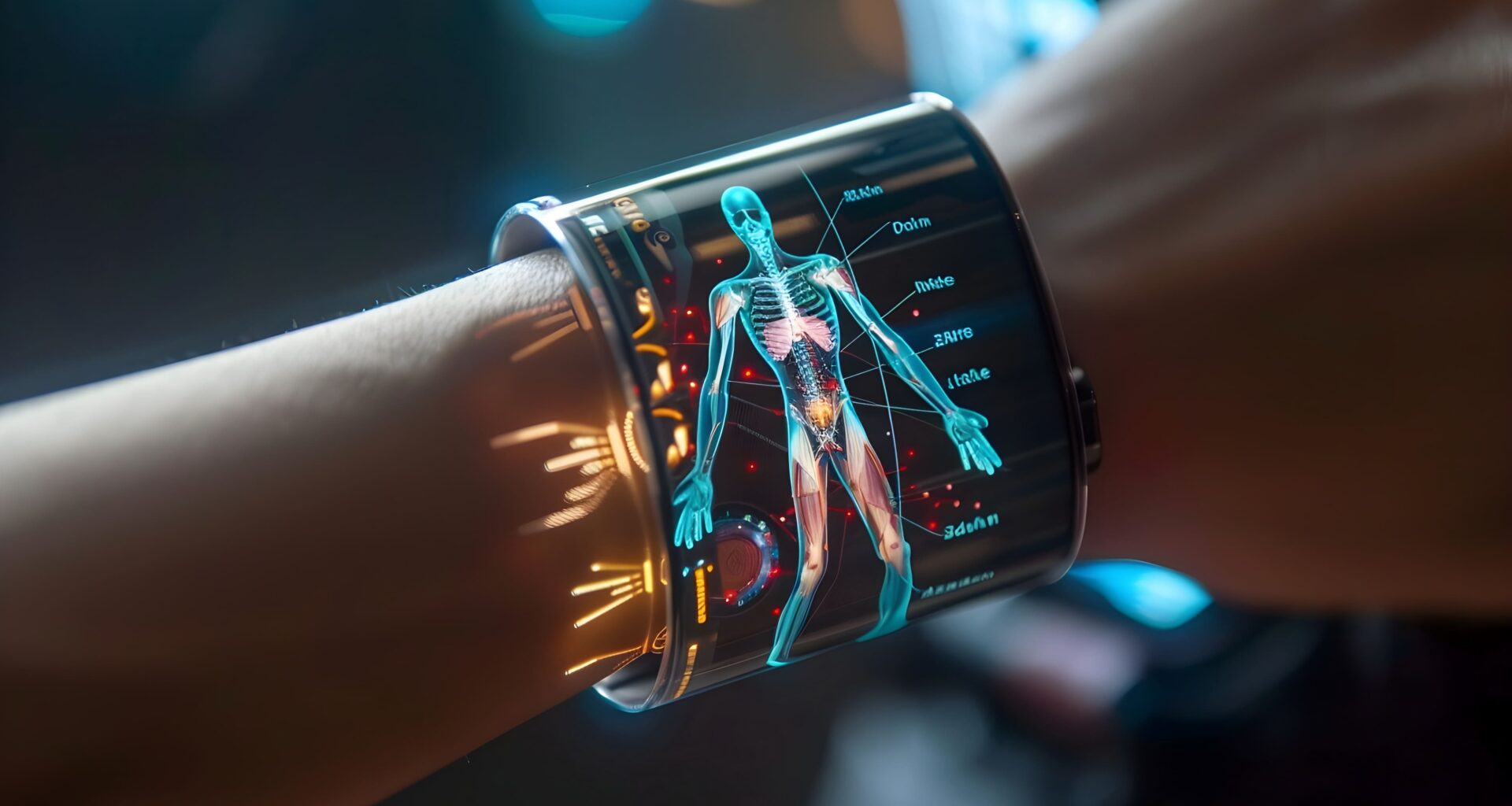Markets And Markets reports that the global wearable technology market is poised to reach USD 265.4 billion by 2026, reflecting an impressive CAGR of 18.0%. This growth rate indicates that the healthcare industry is experiencing a revolution driven by wearable sensors and medical devices. These innovative tools transform how patients monitor their health, offering a window into their bodies like never before. But the true power lies not just in collecting data but in extracting meaningful insights – and that’s where sensor fusion and machine learning (ML) come into play.
Alongside performing basic functions like tracking steps, the intelligent wearable devices can analyze heart rate, sleep patterns, and even skin temperature. This combined data, achieved through sensor fusion, paints a more holistic picture of health. But the raw data is just the beginning. ML algorithms, which are trained on vast datasets, can scrutinize this fused data, revealing hidden patterns and generating personalized health insights.
This post highlights the impact of sensor-fusion and ML-powered wearable devices on patient care and health outcomes.
Unlocking Personalized Health With Wearable Devices
By leveraging sensor fusion and machine learning, wearables can deliver a truly personalized healthcare experience:
- Personalized Activity Recommendations: Imagine a fitness tracker that tailors workout suggestions based on current fitness level, sleep quality, and recovery needs. Advanced wearables have the ability to achieve this and more when it comes to addressing a healthcare need.
- Early Disease Detection: Machine learning algorithms can interpret trends in sensor data and identify subtle changes that might indicate a developing health issue. This allows for early intervention, leading to better treatment outcomes.
- Preventative Healthcare: By understanding the unique health profile, patients can proactively manage their risk factors for various health conditions.
Challenges And Considerations
Integrating machine learning and sensor fusion into wearable healthcare devices can undoubtedly offer an array of benefits. However, these applications come with their fair share of challenges.
The rapid adoption of AI tool utilization in healthcare may leave room for errors. It is crucial to discourage the rapid adoption of untested systems to prevent negative consequences. If not met, it may lead to mistakes by healthcare workers that harm patients, lower trust in AI, and undermine the potential long-term benefits and uses of such technologies globally.
Privacy And Security Concerns
Wearable sensors collect a wealth of personal health data. Ensuring the privacy and security of this data is very critical. Here are some of the concerns:
- Data breaches: Cyberattacks could compromise sensitive health information collected by wearables; addressing this risk requires robust security measures.
- Data ownership and control: Individuals need to clearly understand and control who can access and use their health data collected by wearable devices.
Ethical Implications
The use of AI in healthcare has various ethical considerations. Some key issues include:
- Bias in algorithms: ML algorithms are trained on existing data sets. If these data sets contain biases, the algorithms may perpetuate them in their recommendations. Careful selection and curation of training data are essential to ensure fairness and inclusivity.
- Transparency and explainability: Understanding how AI algorithms arrive at their conclusions is crucial. Healthcare professionals and patients need to be able to understand the reasoning behind AI-generated recommendations.
Regulatory Compliance
Regulatory frameworks need to adapt to address the unique challenges of AI-powered wearable medical devices. Clear guidelines are needed to ensure the safety, efficacy, and ethical use of these technologies.
Data Quality And Readability
The quality and completeness of data collected by wearable sensors directly impact the accuracy and reliability of AI-generated insights. Standardizing data formats and protocols is necessary to ensure the smooth integration and analysis of data from various wearables.
Interoperability And Integration
Wearable sensors from different manufacturers may not be compatible with each other, hindering the seamless sharing and integration of data across healthcare systems. Developing standardized data formats and communication protocols is crucial for fostering interoperability and streamlining data exchange.
Technical Challenges
From miniaturizing powerful AI processors for wearables to optimizing battery life while ensuring continuous data collection, overcoming technical challenges will be crucial for the widespread adoption of AI-powered wearable health solutions.
These challenges emphasize the need for a collaborative approach involving healthcare professionals, technologists, data scientists, and regulatory bodies. By collaborating, the industry can address these issues and unlock the full potential of AI and sensor fusion to revolutionize personalized healthcare.
Latest Industry Trends For Wearable Sensors
Focus On Chronic Disease Management: Wearable sensors paired with machine learning are instrumental in managing chronic conditions like diabetes and heart disease. By continuously monitoring key health indicators, these technologies can enable individuals to manage their health and prevent complications proactively. A review by the National Library Of Medicine reveals that wearables, owing to their popularity and capability, may play a critical role in chronic disease management. However, further research is needed to develop a solid evidence base for safe and effective implementation.
Mental Health Monitoring: The mental health landscape is also embracing wearable technology. A study conducted by Deloitte indicated that 73% of consumers who used a wearable fitness device in the past year reported using it constantly, 25% used it sporadically, and only 2% completely abandoned the device. This number suggests the growing adoption of these innovative devices among users. Further, machine learning algorithms can analyze heart rate variability, sleep patterns, and activity levels, potentially helping to spot early signs of anxiety or depression.
The Road Ahead
The future of healthcare innovation lies in harnessing the power of wearable sensors, sensor fusion, and machine learning. With the advancements in these technologies, we can expect the development of even more sophisticated algorithms and features. This will bring us closer to a future of truly personalized and preventative healthcare.
Are you ready to unlock the potential of personalized health insights? Explore the growing selection of wearable sensors and discuss with your healthcare provider how this technology can benefit your individual needs. Remember, knowledge is power, and understanding your health data empowers you to participate in your well-being actively.
[Previous Blog: Leveraging Blockchain For Efficient Vaccine Tracking And Distribution]









